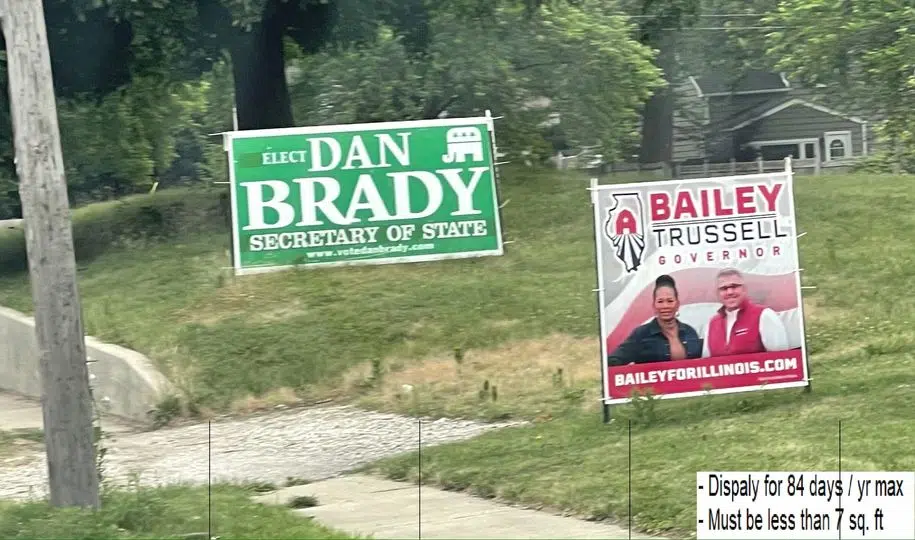Over the past month there has been considerable discussion in the community regarding proposed changes to Normal’s Municipal Code regarding the regulation of temporary signs.
As it happens, when people begin to examine an issue they become aware of other things involved with the matter that aren’t part of the changes being proposed. While public awareness is to be applauded this awareness can often lead to confusion and loss of focus on the actual potential changes being put forward.
Here is what is happening and why.
At the July 5, 2022 Normal Town Council meeting staff asked council to approve a Motion to Initiate Zoning Text Amendments Concerning the Regulation of Temporary Signs.
Council was told in the staff report that “adoption of the proposed ordinance will eliminate the permit requirement for temporary signs in residential areas, while placing reasonable limitations on the size of signs and total signage allowed in residential areas.”
Staff also provided the following bullet points:
• It removes content-based distinctions in temporary-sign regulations, which would be suspect under current law.
• It removes the permit fee for temporary signs in nonresidential zoning districts.
• It removes the permit requirement entirely for temporary signs in residential zoning districts.
• In residential districts, it removes the restriction of one sign per street front.
• In residential districts, provides that a temporary sign may not exceed 7 square feet.
• In residential districts, retains the requirements that signs may not be displayed for more than 84 days in any calendar year, but eliminates the requirement that the sign may not be erected more than five days prior to the event or grand opening, and must be removed within one day after the event or grand opening.
Staff made it clear to council that passing the motion would send the matter to the planning commission, which would hold a public hearing on the proposed ordinance. Staff advised that following the planning commission process the matter would be forwarded to council for action.
On Aug.4, 2022 the commission held its public hearing regarding the proposed changes. The members made it clear to attendees that the purpose of the hearing was to provide an opportunity for public input regarding the proposal. The commission will take action on the measure at their September 8 , 2022 meeting.
Corporation Counsel Brian Day has consistently made it clear through this process that the impetus for the proposed changes is that the existing sign code is not in compliance with federal law.
All sign ordinances should be “content neutral.” Normal currently regulates political campaign signs, real estate signs and general interest signs differently. This is not content neutral.
The town is proposing to change that to residential and non-residential categories. Under those categories what the sign says has no bearing on the matter. And that is content neutral.

Photo Courtesy of Nord for Normal
So why is content neutrality important? It is important because it protects the rights of all of us. It doesn’t allow government to dictate to us what our signs can say. It protects the person who wants to display a “Black Lives Matter” sign as well as the person that wants to display a “Back the Blue”sign.
Content Neutrality is central to laws that regulate free speech. Neutral laws typically regulate the time, place, and manner of speech in contrast to content-based laws, which regulate speech based on content.
The distinction is important because courts hold content-based laws to strict scrutiny while holding content neutral laws only to intermediate, or mid-level, scrutiny. Thus the difference often determines the outcome of a case. Many content based laws are ruled against in court while many content neutral laws are not.
Contact neutral laws allow us to say what we want in a parade or at a protest. They keep universities from denying student organization funding to groups they may not like which are often conservative groups. And they allow us to say what we want on the signs on our lawns.
The motive Normal states for making these changes is sound. And in the process they are removing more regulations than they are adding. That’s good for liberty and freedom.












